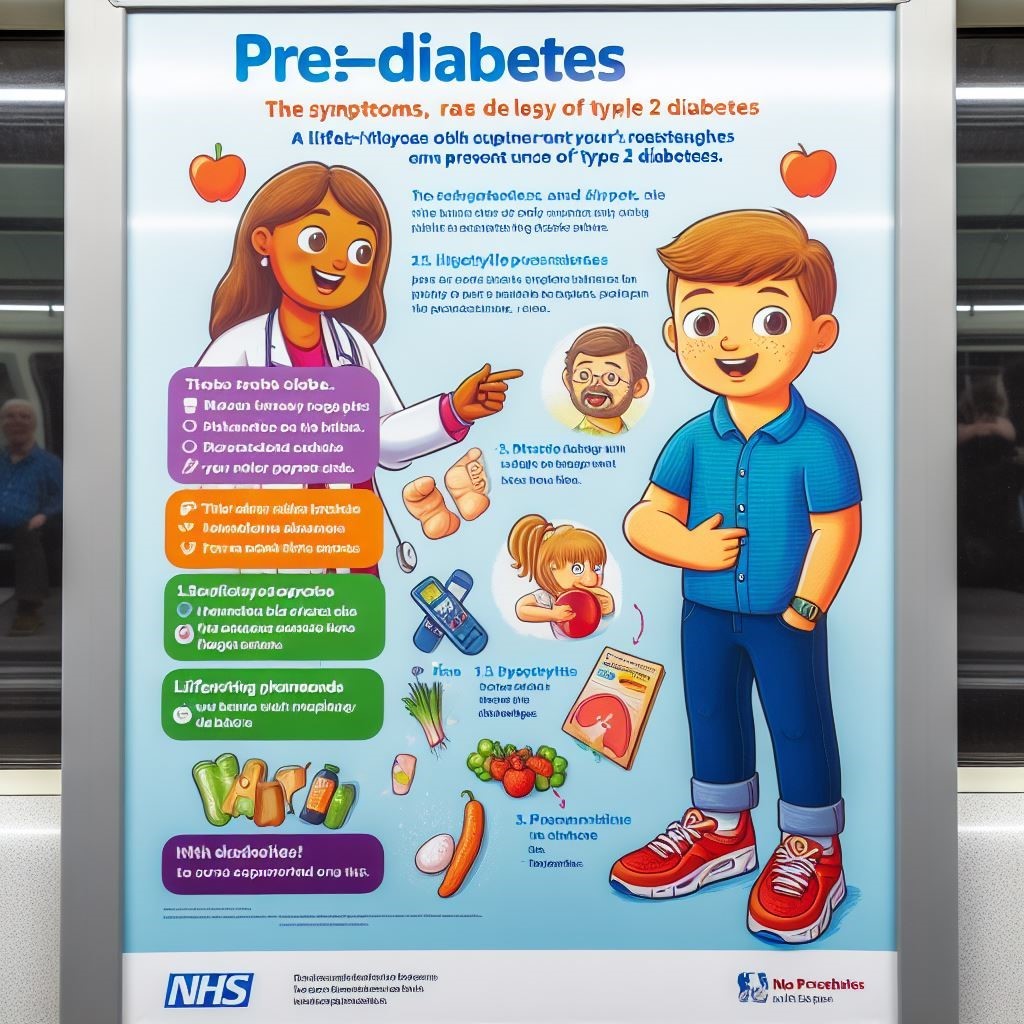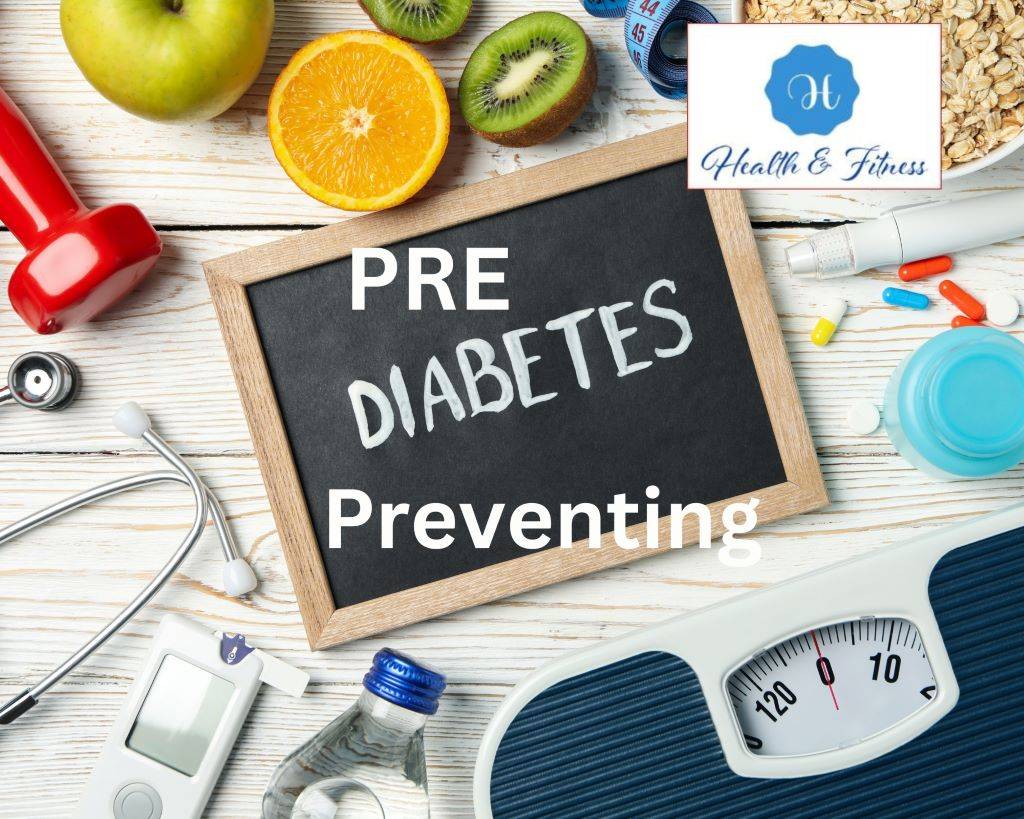Prediabetes NHS: Preventing Strategies NHS-Approved for a Healthier Future
Discover NHS-approved prediabetes prevention strategies for a healthier future. Take control with expert guidance on Prediabetes NHS.
Introduction to Prediabetes NHS

Prediabetes NHS is distinguished by elevated blood sugar levels that exceed the normal range but haven’t reached the threshold for classifying it as type 2 diabetes. According to the National Health Service (NHS), approximately 5 million people in the UK are at risk of prediabetes. The good news is that preventing or reversing prediabetes with the right lifestyle changes and interventions is possible. This comprehensive blog post delves deeper into NHS-approved strategies for a healthier future, focusing on diet, exercise, and other lifestyle factors to help you maintain optimal blood sugar levels.
The Role of the Prediabetes NHS Prevention: Support, Resources, and Programs
The National Health Service (NHS) is crucial in prediabetes prevention in the United Kingdom. By providing support, resources, and programs, the NHS helps individuals at risk of developing prediabetes make lifestyle changes to prevent the progression to type 2 diabetes. This article will explore how the NHS contributes to prediabetes prevention and how you can use these resources to improve your health.
1- Health Checks and Screening for prediabetes NHS

The NHS offers health checks and screening services to identify individuals at risk of developing prediabetes. These services include:
- NHS Health Check: In England, individuals between the ages of 40 and 74 can avail themselves of a cost-free health assessment. This check-up is designed to evaluate the likelihood of developing heart disease, stroke, kidney disease, type 2 diabetes, and specific forms of dementia. The check includes a blood test to measure blood sugar levels and identify prediabetes.
- Diabetes risk assessment: Healthcare professionals can use tools like the Diabetes UK Risk Score to assess an individual’s age, weight, ethnicity, and family history, type 2 diabetes risk.
By identifying those at risk, the NHS can provide targeted support and interventions to help prevent the development of prediabetes and type 2 diabetes.
2- Prediabetes NHS Prevention Program (NHS DPP)

The NHS Diabetes Prevention Program (NHS DPP) The program, free of charge and grounded in evidence, assists individuals at a heightened risk of developing type 2 diabetes. The program focuses on three key areas:
- Healthy eating: Participants receive guidance on adopting a balanced diet, understanding portion sizes, and making healthier food choices.
- Physical activity: The program encourages participants to increase their physical activity levels, providing advice on incorporating exercise into daily routines and setting achievable goals.
- Weight management: The NHS DPP supports weight loss, including setting realistic targets and providing strategies for maintaining a healthy weight.
The program typically lasts 9 to 12 months and includes group sessions, one-to-one support, and digital resources to help participants make lasting lifestyle changes.
3- Online Resources and Tools for Prediabetes NHS
The NHS provides a wealth of online resources and tools to support individuals in preventing prediabetes, including:
- NHS website: The NHS website offers comprehensive information on prediabetes, including causes, symptoms, diagnosis, and management strategies.
- NHS Apps Library: The library features a range of apps and digital tools to support healthy living, including apps for tracking physical activity, managing weight, and monitoring blood sugar levels.
- Change4Life: This public health campaign provides resources and support for families to make healthier choices, including tips on healthy eating, physical activity, and weight management.
4- Support for Smoking Cessation
As Smoking can increase the risk of prediabetes and other health complications, the NHS offers support services to help individuals quit Smoking, including:
- Smokefree National Helpline: This helpline provides advice and support for individuals looking to quit Smoking.
- Smokefree app: The app offers daily support, tips, and motivation to help users quit Smoking and track their progress.
- Local stop-smoking services: These services provide tailored support, including one-to-one counselling and group sessions, to help individuals quit Smoking.
5- Collaboration with Healthcare Professionals for Prediabetes NHS
The NHS works closely with healthcare professionals, such as general practitioners (GPs), nurses, and dietitians, to provide personalized support and guidance for individuals at risk of prediabetes. This collaboration ensures that patients receive the necessary care and interventions to prevent the progression of type 2 diabetes.
Conclusion about Prediabetes NHS
The NHS plays a vital role in prediabetes prevention by offering health checks, screening services, targeted programs, and resources to support individuals at risk of developing the condition. By taking advantage of these services and working closely with healthcare professionals, you can make informed decisions about your health and reduce your risk of developing prediabetes and type 2 diabetes.
NHS-Approved Strategies for Preventing Prediabetes

1. Adopt a Balanced Diet
A. Understanding Macronutrients
Adopting a balanced diet is one of the most effective ways to prevent prediabetes. To do this, gaining comprehension of the three primary macronutrients—carbohydrates, proteins, and fats—is crucial. These macronutrients fulfil distinct functions in sustaining overall well-being and must be consumed in suitable ratios.
- Carbohydrates: These are the body’s primary source of energy. Complex carbohydrates, such as whole grains and legumes, are preferable because they release energy slowly, helping to maintain stable blood sugar levels.
- Proteins: Proteins are essential for building and repairing tissues, including muscles, skin, and organs. They also play a role in hormone production and immune function.
- Fats: Fats are necessary for absorbing fat-soluble vitamins and providing energy. Unsaturated fats, such as those found in olive oil and avocados, are healthier than saturated fats, which are found in butter and fatty meats.
B. The Eat Well Guide
The NHS recommends following the Eat Well Guide, which emphasizes consuming a variety of foods from the five main food groups:
- Fruits and vegetables: Aim for at least five portions of various fruits and vegetables daily. Fresh, frozen, canned, or dried options are available. Incorporate a mix of colours and types to ensure you get a wide range of nutrients.
- Starchy carbohydrates: Choose wholegrain or high-fiber options like brown rice, whole wheat pasta, and wholegrain bread. These foods release energy slowly, helping to maintain stable blood sugar levels.
- Protein: Opt for lean protein sources like poultry, fish, beans, and pulses. Aim for at least two servings of fish every week., including one portion of oily fish like salmon or mackerel.
- Dairy and alternatives: Choose low-fat dairy products or calcium-fortified options like almond or soy milk. These provide essential nutrients like calcium and vitamin D without the added saturated fat.
- Fats: Opt for unsaturated fats like olive oil and avocados, as well as nuts, in place of saturated fats found in butter, lard, and fatty meats. Unsaturated fats can help improve cholesterol levels and reduce the risk of heart disease.
c. Portion Control and Mindful Eating
Besides choosing the right foods, practicing portion control and mindful eating is essential. This involves paying attention to hunger and fullness cues, nibbling, and savouring each bite. By doing so, you can avoid overeating and better manage your weight, which is crucial for preventing prediabetes.
2. Get Regular Exercise
A. Aerobic Exercise
Physical activity plays a crucial role in preventing prediabetes. The NHS recommends that adults strive for 75 minutes of intense aerobic exercise or 150 minutes of moderate aerobic exercise per week. This can be broken down into shorter sessions, such as 30 minutes of exercise five days a week. Aerobic exercise includes brisk walking, swimming, cycling, and dancing.
B. Strength Training
Besides aerobic exercise, it’s important to incorporate strength training exercises at least two days a week. This includes lifting weights, resistance bands, or bodyweight exercises like push-ups and squats. Strength training helps build and maintain muscle mass, improving insulin sensitivity and lowering prediabetes risk.
C. Flexibility and Balance Exercises
Incorporating flexibility and balance exercises into your routine can improve overall health and well-being. Activities like yoga, Pilates, and tai chi can help improve flexibility, balance, and posture, reducing the risk of falls and injuries.
3. Maintain a Healthy Weight
A. Understanding BMI
Carrying excess weight, particularly around the waist, can increase prediabetes risk. The NHS recommends a body mass index (BMI) within the healthy range of 18.5 to 24.9. BMI measures your height and weight to determine whether you’re underweight, average weight, overweight, or obese.
B. Weight Loss Strategies
Combine a balanced diet with regular physical activity to achieve and maintain a healthy weight. If you’re overweight, losing even a handful of weight can significantly affect your health. Research has shown that losing just 5% of your body weight can reduce the risk of prediabetes by more than 50%. Set realistic weight loss goals and work towards them gradually, aiming for a rate of 1 to 2 pounds per week.
4. No/Limit Alcohol Consumption
Excessive alcohol consumption can contribute to weight gain and increase prediabetes risk. The NHS advises that adults should not regularly drink more than 14 units of alcohol per week. If you choose to drink, you must spread your consumption evenly over three or more days and have several alcohol-free days each week.
To reduce your alcohol intake, swap out high-calorie alcoholic beverages for lower-calorie options like light beer or wine spritzers. Alternatively, consider alternating alcoholic drinks with non-alcoholic options like water or soda to stay hydrated and reduce overall consumption.
5. Quit Smoking
Smoking can increase the risk of prediabetes and other health complications. If you’re a smoker, quitting is one of the best things you can do for your health. The NHS offers support services to help you stop, including the Smokefree National Helpline and the Smokefree app.
6. Manage Stress
Chronic Stress can hurt blood sugar levels and increase the risk of prediabetes. Consider incorporating relaxation techniques like deep breathing exercises, meditation, or yoga into your daily routine to manage Stress. Additionally, getting enough sleep and maintaining a firm friend and family support network can help you better cope with stress.
Conclusion of Prediabetes NHS
Preventing prediabetes is possible with the right lifestyle changes and interventions. By adopting a balanced diet, getting regular exercise, maintaining a healthy weight, limiting alcohol consumption, quitting Smoking, and managing stress, you can significantly reduce your risk of developing prediabetes and enjoy a healthier future. Remember, it’s never too late to make positive changes for your health, and the NHS is here to support you every step of the way.



